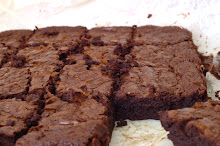Hello!
If you've ever left your 8-year-old daughter behind in a pub after lunch one Sunday, perhaps you need to re-evaluate your life! Maybe shift a few priorities, or at least get used to sleeping on the sofa for the rest of your fecking life. At some point, probably around her 15th birthday your daughter will turn to you and say "Dad, you're a fecking bell-end" and you will have to swallow it, instead of ignoring it like you have done whenever anybody else has said it to you during your entire tenure as prime minister. Your wife, of course, should have at least thought (if not said) it roughly 2x108 times since you first made that sort of mistake.
Sorry, went off on one a bit there. What I meant to talk about today was digestive biscuits.
Y'see, after a meal - like Sunday lunch in a pub with multiple familes, assistants and a protection detail - it's quite nice to end with cheese & biscuits. The juxtaposition of a zippy cheddar with sweet pickle on a digestive is just heaven, and if you have a runaway camembert don't waste it on claggy bread but ladle it onto a biccy to get as much flavour into your mouth as possible.
Digestives are so called because apparently bicarb is a great way of settling your stomach after a heavy meal. Digestives have bicarb in, so therefore they're good for you, especially if you have indigestion! Actually, this is total bobbins; the amount of bicarb in digestives is so tiny that really the only good thing about them is the fibre.
Anyway, I've gone off shop-bought digestives. Something about them has changed in the last year or so, something to do with the fats they're using in them, and I figured it was time to learn how to roll my own. They have to be some of the simplest biccies to make, surely?
No.
Biccies are a bit like pastry, in that they're easy to do wrong. Some biscuits can take it - like amaretti or cookies, or even home-made rich tea - but digestives really can't. You have to get the right fat/flour content, the right sugar, the right oatmeal (not rolled oats, though - that way lies hobnobs) and to get it to all come together in the right consistency. And if you overdo the bicarb they get an awful aftertaste. You can get away with no bicarb (I forgot it in one batch) but they don't have the right texture and won't crumble properly - and with digestives the crumble is everything.
So: after some experimentation I came up with this.
I: 175g wholemeal plain four (this was surprisingly nontrivial to find; wholemeal bread flour is commonplace, but absolutely no good for this), 75g pinhead oatmeal, 1/4tsp bicarb, 125g cold butter cut into cubes, 1/2tsp salt, 75g soft brown sugar, 10ml milk.
M: Oven to 160ishC. Mix the flour, oatmeal, bicarb & salt in a bowl. Rub in the butter to breadcrumb stage - don't overdo it or it'll start to clump too early. Stir in the sugar, add the milk then get your hands in and form it into a single ball of dough. Form it into a log, wrap in baking parchment and put in the fridge for at least 30 mins. Cover a baking sheet with more parchment, then unwrap the log, roll it in more wholemeal flour and make sure it's pretty cylindrical. Then slice disks off - no more than pound-coin thickness - and place on the sheet. Leave a bit of a gap for expansion (I do 16 to a sheet, but this mix only gets you 24-26 biccies) and bake for at least 30 mins. You can bake for longer if you like - turn the sheet around after 30 mins, though - because like pastry and bread it is always worth leaving them in for ten minutes longer than you think. I usually leave them for 45 or so, but they might get a bit scorched if you have a keen oven.
Take them out, leave for two minutes on the baking sheet before transferring to a cooling rack and the instant they are completely cold put them in an airtight box.
These make excellent dunkers but they really shine when slabs of vintage cheddar and some home-made chutney are on top.
Subscribe to:
Post Comments (Atom)

Eating Digestives with our tea whilst on your side of the pond was a joy. We have found Digestives on this side of the pond but due to their trans-Atlantic trip to our local grocer's shelves, they lack the relative freshness of their mainland counterparts.
ReplyDeleteThus, making them in our own home would be a wonderful thing, indeed.
The grams to ounces conversions I can wade through. Such things as "Wholemeal plain flour" and "pinhead oatmeal", though, could stand a bit of translation for those of us who are Queen's English impaired. Translation, please?
...
Wholemeal plain flour I think is wholewheat all-purpose flour. Pinhead oatmeal is the largest size oatmeal you can get, without it becoming porridge oats. Hope that helps!
Delete